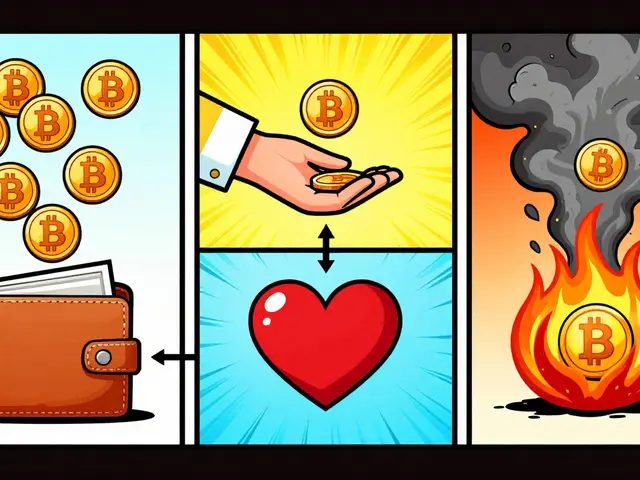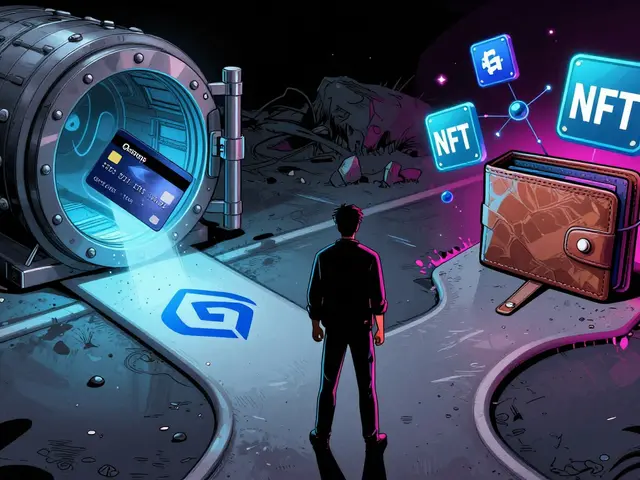KingMoney Airdrop – Complete Guide and Latest Updates
When talking about KingMoney airdrop, a token distribution event run by the KingMoney blockchain project to reward early supporters and boost community growth. Also known as KM token airdrop, it blends crypto incentives with DeFi staking mechanics. This airdrop is a subtype of a broader cryptocurrency airdrop, a free token giveaway that usually requires minimal on‑chain actions like wallet registration or token holding. Understanding how airdrops fit into the larger DeFi token ecosystem, where liquidity farming, staking and governance intersect with token launches, is key to making the most of KingMoney’s offer.
Why tracking airdrops matters for crypto investors
Every airdrop, including KingMoney’s, creates a ripple effect across the blockchain project, the underlying network that hosts the token, its smart contracts and community tools. A well‑executed airdrop can spike interest, draw new users, and increase on‑chain activity, which in turn lifts the token’s market cap – a metric we break down in many of our posts. When a project aligns its tokenomics with real utility, the airdropped tokens often gain value faster. That’s why we pair airdrop guides with deep dives into market cap calculations, token supply basics, and risk assessment, helping you decide whether to hold, trade or lock the tokens you receive.
Eligibility for the KingMoney airdrop hinges on three main attributes: wallet age, prior interaction with the KingMoney DEX, and participation in community polls. These criteria mirror the standard practice across most cryptocurrency airdrop campaigns, where projects reward both passive holders and active contributors. For instance, if you’ve swapped at least $100 on the KingMoney exchange or staked the native KMT token, you’ll likely meet the threshold. Our step‑by‑step claim guide walks you through wallet connection, KYC (if required), and the final button click that triggers the token transfer, all while warning you about phishing traps that have plagued other airdrop events.
Safety is a recurring theme in our airdrop coverage. The KingMoney team uses a secure token claim portal that signs transactions directly from your wallet, eliminating the need to share private keys. However, scammers often copy the portal’s URL or send fake emails promising higher rewards. By comparing the official domain, checking SSL certificates, and verifying announcements on the project’s verified social channels, you can avoid the common pitfalls that have plagued past airdrop scams, fraudulent schemes that mimic legitimate token drops to steal funds. We also recommend using a hardware wallet for extra protection when claiming sizable airdrops.
Beyond the immediate claim, the KingMoney token’s utility determines its long‑term relevance. The token powers governance voting, fee discounts on the KingMoney DEX, and can be staked to earn extra yields. This multi‑purpose design ties the airdrop to the broader DeFi ecosystem, meaning your free tokens could become a source of passive income if you lock them in the platform’s liquidity pools. Our DeFi token deep dives explain how staking rewards are calculated, what lock‑up periods look like, and how to withdraw without incurring hefty penalties.
Finally, staying updated is essential because airdrop timelines can shift due to technical audits or regulatory reviews. KingMoney’s roadmap includes a snapshot date, a distribution window, and a post‑airdrop community vote on future token burns. By subscribing to the project’s official Telegram, following their GitHub commits, and tracking our real‑time airdrop calendar, you’ll never miss a deadline. The collection of articles below covers everything from the basics of airdrop eligibility to advanced tokenomics analysis, giving you a full toolbox to navigate KingMoney and similar opportunities.







